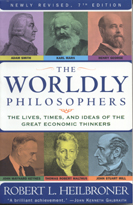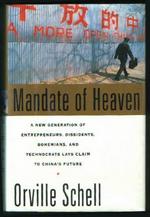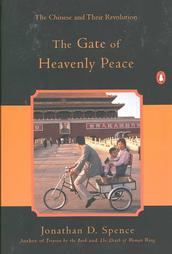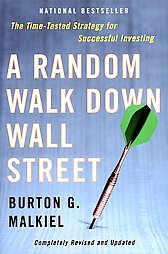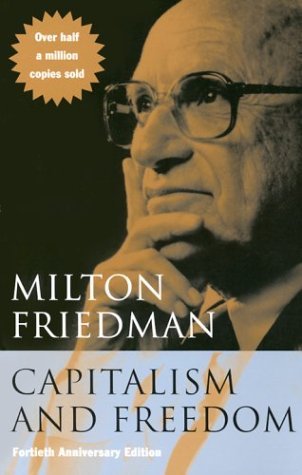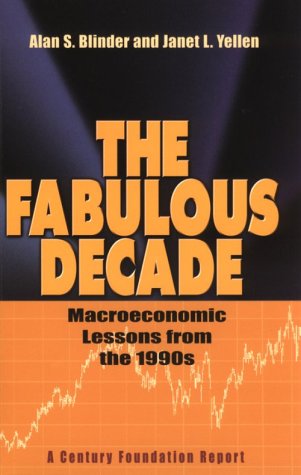Bank of China, Sinopec to Join Hang Seng Stock Index
From Bloomberg By Hanny Wan and Darren Boey
Bank of China Ltd. and China Petroleum & Chemical Corp., known as Sinopec, will be added to Hong Kong’s Hang Seng Index after a quarterly review of the stock benchmark, the compiler said.
The number of constituents on the Hang Seng will rise to 36
from 34, HSI Services Ltd. said in a statement after the market
closed today. No deletions were announced. The changes will take
effect on Dec. 4, the index provider said.
Bank of China and Sinopec, so-called H shares of companies
incorporated in mainland China, had been tipped for inclusion by
brokerages such as Nomura International (Hong Kong) Ltd.
The addition reflects the Chinese companies’ growing
presence on Hong Kong’s stock market. The exchange’s Web site
shows H shares at the end of October accounted for 21 percent of
the value of the main board, up from 1.5 percent at the end of
1997, the year the U.K. returned Hong Kong to China.
Bank of China and Sinopec’s inclusion “is evidence that H-
shares are getting more important,” said Kent Yau, deputy head
of research at Core-Pacific Yamaichi International in Hong Kong.
“If you look at the trading volume of H shares, they’re getting
bigger and bigger.”
The number of Hang Seng members will be gradually increased
to 38 to include H shares, HSI Services said in June. China
Construction Bank Corp., the nation’s fourth-largest lender, was
the first H share to join the stock benchmark after the index
compiler’s August quarterly review.
Shares of Bank of China, the nation’s second-largest lender,
have climbed 16 percent since they were sold in an initial public
offering at the end of May. Sinopec, Asia’s largest oil refiner,
has surged 47 percent this year.
“Bank of China was a bit of a surprise,” Yau said. “Short
term it’s going to get a boost. It’s positive news. Investors will
probably start to accumulate” before the changes take effect.
HSI Services determines constituents based on criteria such
as market value and trading volume. Adjustments would prompt
funds that mirror the stock benchmark, such as the $3.4 billion
Tracker Fund of Hong Kong, to buy stocks that are added.
Exchange-traded funds may have to buy HK$475.3 million
($61 million) of Sinopec shares and HK$579.4 million of Bank of
China shares in response to the inclusion in the Hang Seng, Sandy
Lee, an analyst at Nomura, said in an e-mail after HSI Services’
statement was released.
Bank of China has a market value of HK$851 billion, behind
HSBC Holdings Plc and China Mobile Ltd. among existing Hang Seng
Index members.
Sinopec, Asia’s biggest refiner, is valued at HK$562 billion,
which would put it behind Construction Bank, currently the
measure’s third-biggest company.
HSI Services also said it will start an index to measure the
H shares of Chinese financial-related companies from Nov. 27. The
Hang Seng China H-Financials Index will track five lenders
including Bank of China and Construction Bank, and three insurers
such as China Life Insurance Co.
Chinese Court Orders FTSE Xinhua Index Provider To Cancel Contract
A Chinese court said FTSE Xinhua Index Ltd. violated a contract with the Shanghai Stock Exchange related to pricing data, but the index provider said the ruling would have no impact on its ability to do business.
The Shanghai Pudong New Area District Court yesterday ordered cancellation of the year-old contract and ordered FTSE Xinhua Index to pay the exchange damages of $20,000, according to Fredy Bush, co-chairman of FTSE Xinhua. Ms. Bush said that her company will appeal the decision, and that in the meantime it has an alternative way to obtain Shanghai stock prices needed to calculate the values of the SGX FTSE Xinhua China A50 Index Futures contract, a product it licenses to trade in Singapore.
China Posts Rules on Index Futures
From The Wall Street Journal, China Posts Rules on Index Futures
The China Financial Futures Exchange published draft rules on stock-index futures on its Web site, setting a minimum-access threshold that analysts said could deter some investors.
Under the draft rules, each investor would deposit funds equivalent to 8% of the value of the derivatives contract, which analysts said would put the minimum threshold at about 34,400 yuan, or about $4,350.
The rules also stipulate that a single investor can hold no more than 2,000 lots of single-month futures contracts at one time.
……
According to the draft rules, published yesterday for public comment, China’s first stock-index futures will be based on a unified index that groups 300 large-capitalization stocks on both the Shanghai and Shenzhen exchanges. The rules also stipulate that the price of stock-index futures can’t rise or fall by more than 10% in one day from the previous close.
Hong Kong is Set to be the Largest IPO Market
Fueled by the IPO frenzy in mainland China, Hong Kong is set to surpass London and New York to become the biggest market for initial public offerings, said the New York Times. The bulk of new listed companies in Hong Kong are from mainland, including the mammoth ICBC, which is to set a new world record on IPO value.
Read the NYT:
In a reflection of China’s growing prominence in international finance, Hong Kong is set for a banner year in global markets: More money will be raised by companies selling shares to the public here than on the biggest exchanges in New York and London.
And on Friday, pricing will be set for the world’s largest offering ever, that of China’s biggest bank, Industrial and Commercial Bank of China.
This week, long lines of individual investors showed up at downtown stalls to grab prospectuses for the bank’s initial public offering, while institutional investors have swamped the underwriters with orders. (continue)
Two Chicago Derivative Exchanges to Merge
The Chicago Mercantile Exchange and the Chicago Board of Trade is to merge in an $8 billion deal. The merger of the two longtime competitors will create the largest derivative market in the world
The new exchange, to be named CME Group, will have an average daily trading volume of about 9 million contracts, representing $4.2 trillion, much larger than the New York Stock Exchange’s $87.2 billion daily trading value.
The merger signaled the rising position of Chicago as the world finance center. It also marked a milestone on the track of market integration.
From the New York Times:
Two Exchanges in Chicago Will Merge
By Alexei Barrionuevo
The Chicago Mercantile Exchange and the Chicago Board of Trade, longtime fierce competitors, said Tuesday that they would merge in an $8 billion deal creating the largest market for financial derivatives contracts in the world.
The transaction would be the latest in a wave of mergers among the leading financial exchanges, as they transform themselves from member-owned clubs to for-profit companies competing in markets that have become increasingly global and electronic.
The New York Stock Exchange, the Nasdaq Stock Market and smaller exchanges have announced mergers, and the New York exchange’s recent pursuit of Euronext, operator of four European stock markets, is driven in large part by Euronext’s derivatives exchange in London.
A combination of the two Chicago markets, which were founded in the 19th century to trade agricultural futures, would trumpet the spectacular rise of derivatives — financial contracts whose value is tied to or derived from currencies, interest rates, commodities or other things of value.
Derivatives have made risk more manageable for many businesses, including oil companies seeking to insure themselves against storms and banks trying to protect themselves against home mortgage defaults. Yet they have also fueled trading blow-ups, as in the near-collapse in 1998 of the hedge fund Long-Term Capital Management that shook the financial markets. Read the rest of this entry »
Wilshire, Dow Jones to Launch a New Group of Global Indexes
Good news for index funds and those investing in global markets. The new global indexes Wilshire and Dow Jones are cobbling are to meet needs from more and more investors who are increasingly eyeing emerging markets as havens to hedge their portfolios and, if possible, to collect more returns.
The new Dow Jones Wilshire Global Total Market Index, including more than 12,000 stocks in 56 countries and a float-adjusted market value of $33.6 trillion, will beat other two global indexes on capital value: MSCI All-Country World Index, which covers 2,772 stocks in 48 markets with a market value of $27.4 trillion, and the S&P Citigroup Global Equity Indices, which covers 10,446 stocks in 56 countries with a market value of $33 trillion.
From the Wall Street Journal
Wilshire, Dow Jones to Launch a New Group of Global Indexes
By Karen Richardson
With investors continuing to chase returns in global markets, companies that build stock indexes are ramping up their offerings.
In the latest instance, Wilshire Associates Inc., which compiles the DJ Wilshire 5000 Composite index, and Dow Jones Indexes, which compiles the Dow Jones Industrial Average, are teaming up to launch a new group of global indexes, in a bid to compete for business from international money managers who are the prime users of tools like these. Dow Jones & Co. is the publisher of The Wall Street Journal.
Several rival index providers are also rolling out new products, or making changes in their lineups. Next month, Standard & Poor’s Corp. plans to launch “growth and value” style indexes for emerging markets, which would enable investors to track the performance of companies in developing countries that fall into the categories of growth or value stocks. This month, S&P also started providing more historical performance and customized data for each country in its S&P Citigroup Global Indices, according to David Blitzer, managing director and chairman of S&P’s index committee. Read the rest of this entry »







